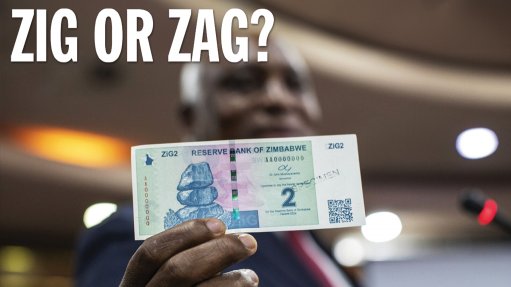Covid-19 hits China-Africa trade and investment, but impact should fade
The Covid-19 pandemic has hit African trade with China and is likely to reduce Chinese investment on the continent, the Economist Corporate Network, Baker McKenzie and Silk Road Associates pointed out in their report ‘BRI Beyond 2020’. The BRI is the Belt and Road Initiative, which is China’s megaprogramme to connect with other countries in Asia, Europe and Africa.
“The Covid-19 epidemic definitely has a dampening effect on BRI activities as Chinese companies focus their resources and efforts on dealing with the various types of impact caused by such [an] epidemic,” said Baker McKenzie Beijing merger and acquisition partner Bee Chun Boo. “However, this effect will likely be relatively short-term and we are already seeing the resumption of BRI activities by our Chinese clients. It is also heartening to see foreign sellers and partners adjusting their deal timetables to make allowances for the impact caused by this epidemic.”
The BRI would remain a priority for China, assured Silk Road Associates CEO Ben Simpfendorfer. But there would be economic fallout from Covid-19 as Chinese attention and resources were diverted away from the BRI to dealing with the domestic economic and financial consequences of the disease.
“This may mean reduced investments into the BRI’s smaller, less critical markets where the opportunities to connect such investments to the global supply are limited,” he noted. “Central Asia, sub-Saharan Africa, and Eastern Europe will accordingly see a short-term dip in BRI-related activity, relative to South-East Asia. The exception to this view is where China seeks to share its valuable experience of battling Covid-19 with other BRI countries.”
The need to strengthen the health systems of African countries was a potentially important area for the BRI. Chinese technology companies and their platforms (such as DingTalk from Alibaba, WeChat Work from Tencent and WeLink from Huawei) could contribute to this.
China had been significantly involved in infrastructure development in Africa. However, over the past few years, the focus had changed from the mining sector to the construction, financial services and manufacturing sectors. This change had been aiding African attempts at economic diversification to reduce dependence on natural resources. The Southern African Development Community agreed, last August, to connect its industrialisation (especially infrastructure development) strategy to the BRI.
Trade between Africa and China was important. This rose by 19.7% in 2018, significantly above the 12.6% average growth in the Asian country’s trade with the world. Covid-19 had affected that trade. “With China having shut down its manufacturing centre and closed its ports, there has been [a] resultant decrease in demand for African commodities,” pointed out Baker MacKenzie Johannesburg customs and trade partner Virusha Subban. “Importers in China cancelled orders due to port closures and as a result of a reduction in consumption in China. Sellers of commodities in Africa were forced to offload products elsewhere at a discounted rate . . . The manufacturing and industrial sectors in Africa have been impacted by a decreased supply of key components from China (and other relevant countries affected by Covid-19.”
“While the impact of Covid-19 on African economies will be detrimental, there is light at the end of the tunnel in that the project delays are expected to be mostly short-term; and future initiatives will now have a heightened focus on sustainability – improving not only their long-term outlook, but also the sustained health of the environment and, most importantly, Africa’s people,” affirmed Bake McKenzie Johannesburg Africa head and partner Wildu du Plessis.
Comments
Press Office
Announcements
What's On
Subscribe to improve your user experience...
Option 1 (equivalent of R125 a month):
Receive a weekly copy of Creamer Media's Engineering News & Mining Weekly magazine
(print copy for those in South Africa and e-magazine for those outside of South Africa)
Receive daily email newsletters
Access to full search results
Access archive of magazine back copies
Access to Projects in Progress
Access to ONE Research Report of your choice in PDF format
Option 2 (equivalent of R375 a month):
All benefits from Option 1
PLUS
Access to Creamer Media's Research Channel Africa for ALL Research Reports, in PDF format, on various industrial and mining sectors
including Electricity; Water; Energy Transition; Hydrogen; Roads, Rail and Ports; Coal; Gold; Platinum; Battery Metals; etc.
Already a subscriber?
Forgotten your password?
Receive weekly copy of Creamer Media's Engineering News & Mining Weekly magazine (print copy for those in South Africa and e-magazine for those outside of South Africa)
➕
Recieve daily email newsletters
➕
Access to full search results
➕
Access archive of magazine back copies
➕
Access to Projects in Progress
➕
Access to ONE Research Report of your choice in PDF format
RESEARCH CHANNEL AFRICA
R4500 (equivalent of R375 a month)
SUBSCRIBEAll benefits from Option 1
➕
Access to Creamer Media's Research Channel Africa for ALL Research Reports on various industrial and mining sectors, in PDF format, including on:
Electricity
➕
Water
➕
Energy Transition
➕
Hydrogen
➕
Roads, Rail and Ports
➕
Coal
➕
Gold
➕
Platinum
➕
Battery Metals
➕
etc.
Receive all benefits from Option 1 or Option 2 delivered to numerous people at your company
➕
Multiple User names and Passwords for simultaneous log-ins
➕
Intranet integration access to all in your organisation

















